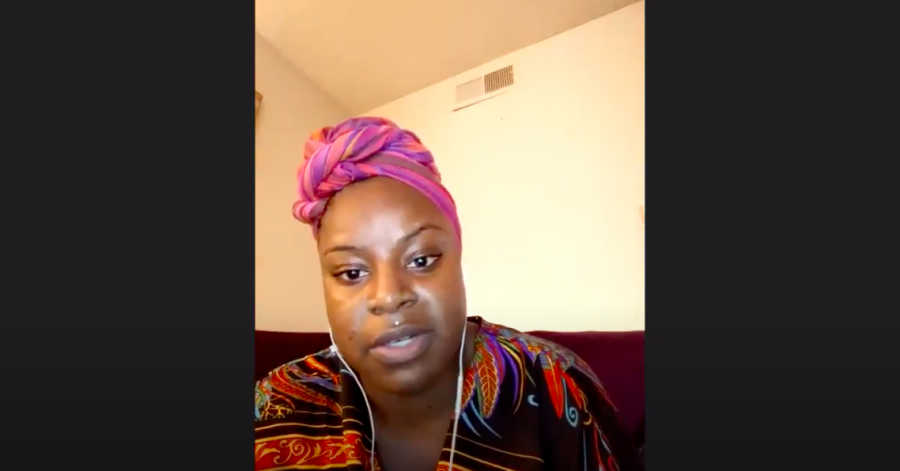On April 15, San Diego State’s Women’s Resource Center hosted a panel on sex trafficking through Zoom for the annual Take Back the Week event.
The event was created to help spread awareness about issues surrounding sexual violence and rape and provide support to victims, according to the Women’s Resource Center’s Instagram page.
The four panelists discussed the meaning of human trafficking and how it is relevant to the area and county of San Diego, as well as what’s happening in the community to help end human trafficking.
There are different ways to understand human sex trafficking, either through a cultural perspective or in a legal definition, San Diego Community College District Campus Advocacy Coordinator Myisha Butler-Ibawi said.
In legal terms, Butler-Ibaw said human trafficking is the kidnapping by force of folks, a practice that may or may not include sex.
“A lot of times, we think of the movie Taken,” North County Lifeline Prevention and Intervention Specialist Holly Kempler said. “But, there also could be circumstances where people are coerced or fraudulated … There are common misconceptions and we see (human sex trafficking) through pornography and massage shops.”
San Diego is the eighth-largest city for human sex trafficking, according to President of Planned Parenthood Generation Action Delanie McGinn.
Kempler also said San Diego is an attractive tourist destination and is home to a significant military presence, which both play into the prevalence of the practice and how it looks locally. Tijuana, Mexico, just on the other side of the border, is also a hotspot for sex trafficking.
This issue doesn’t threaten all communities equally, said Butler-Ibawi, who added that African American girls tend to be targeted more for trafficking.
“The majority of the folks I see are a lot of black girls,” Butler-Ibawi said. “Ask yourself, who’s being marginalized.”
To help end human sex trafficking, it is important to do your research and look things up yourself, according to Butler-Ibawi. She said to utilize cultural course offerings such as Chicanx studies, as there may be components of human trafficking.
“Man tells (community members) their bodies will be a ticket to joy and happiness,” Butler-Ibawi said. “We are looking at marginalized communities at a risk factor. The most important thing is vulnerability … we have people from different socio-economic settings and genders.”
To watch recordings of this panel discussion, as well as all programs offered during Take Back the Week, visit the Women’s Resource Center’s events page.
A previous version of this story misattributed a statement that was actually said by Holly Kempler. The Daily Aztec regrets this error.







